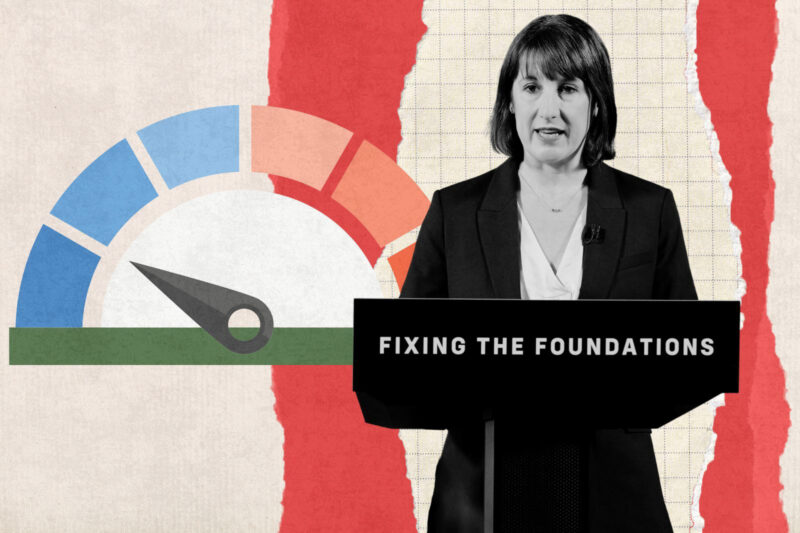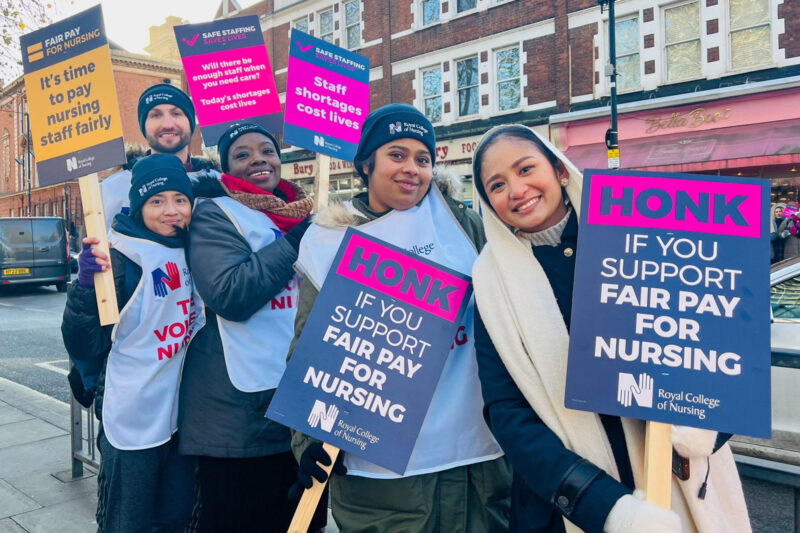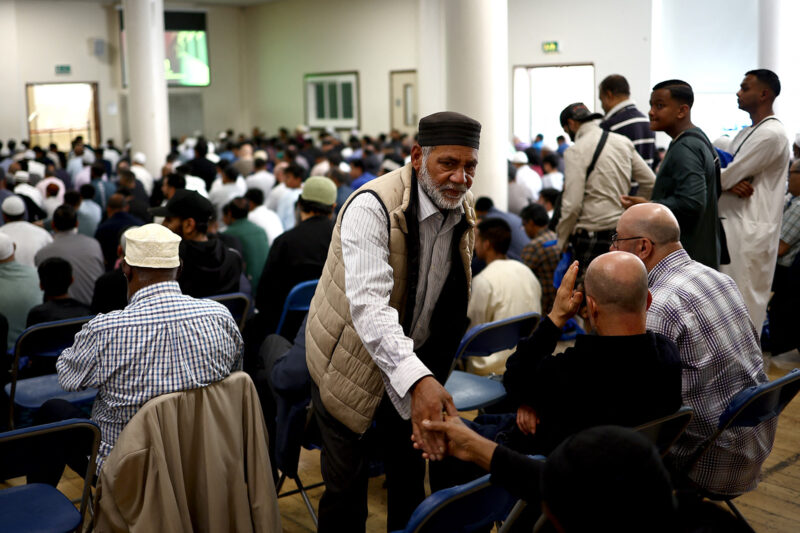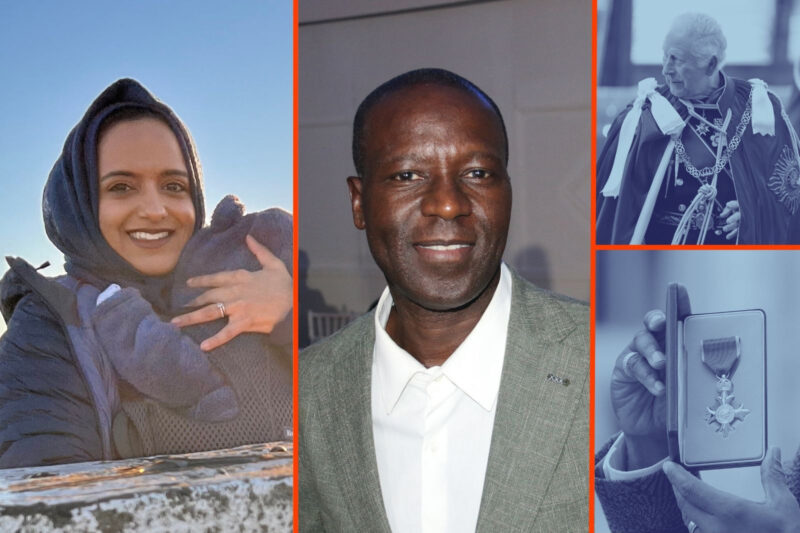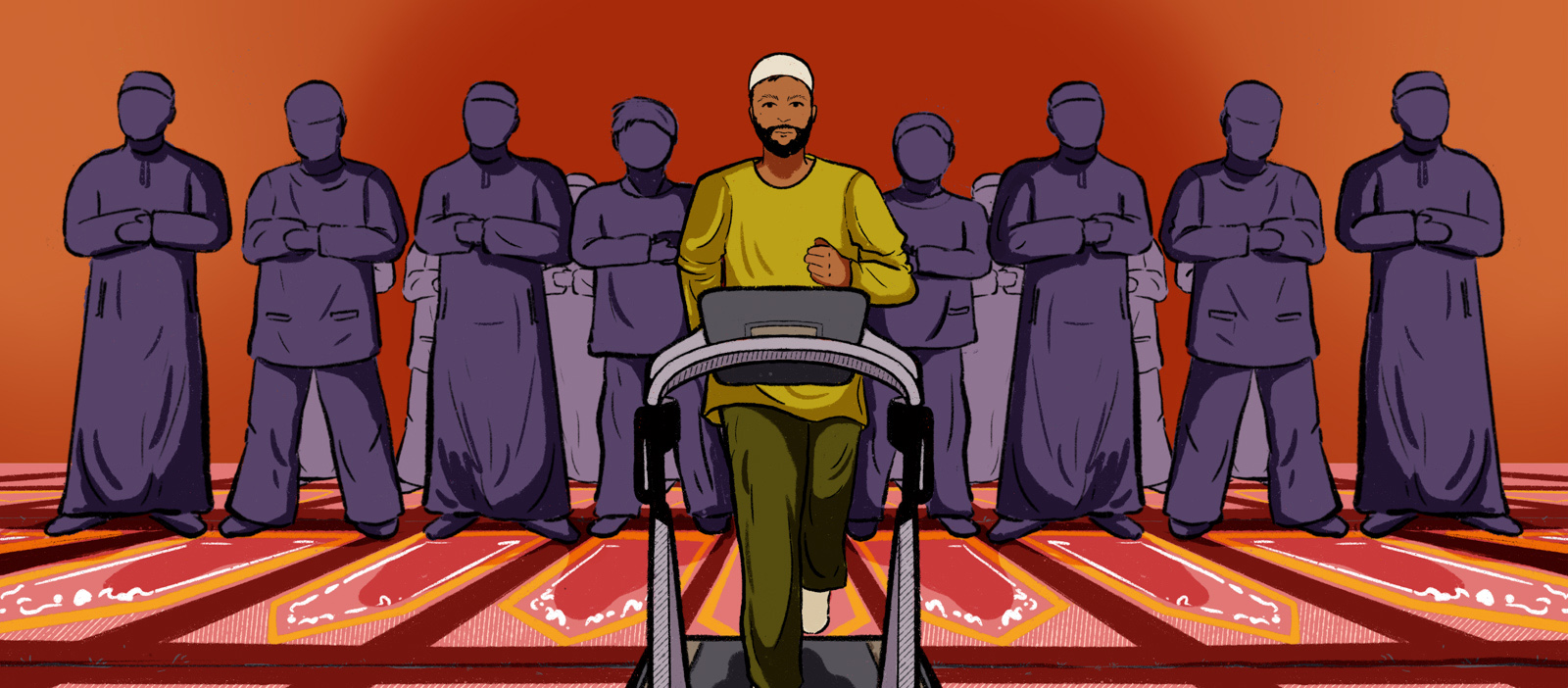
Low pay and high demands: the UK is facing a shortage of full-time imams
Britain’s imams are among the lowest-paid clergy in the UK, causing many to leave their mosques and even change careers
–
After his first marriage ended seven years ago, Adam Kaan, 42, juggled being a full-time dad with finding a part-time job in which he could work around the needs of his young children. “I was barely getting a wage, up to my eyeballs in debt and in a really bad state,” Kaan recalls.
A qualified business IT teacher, Kaan is also a trained imam who studied Islamic sciences at a seminary in Bolton. Armed with his theological training, he turned to his mosque in Oldham to fill a role as a Qur’an teacher. “I’d get paid £6 an hour. It wasn’t much, but it offered flexible hours and was all I could do at the time,” he said.
After a few months, Kaan approached his senior at the mosque to ask if he could get a 20 pence raise in line with the minimum wage at the time. The mosque refused, and instead replaced him with a member of its committee.
Over the past few months Hyphen has spoken to imams from around the UK, and all share the same story: they are underpaid for the work they do. Many turn to part-time jobs to supplement their income, with jobs ranging from solicitors to teachers to Uber drivers.
For Kaan, a career in personal training was key to economic independence. He no longer works at the mosque and is now the owner of Kaan’s Fitness, earning enough to have a team of trainers working for him. As for Qur’an teaching, he has created his own self-paced online Quran course.
“Imams and shayukh should be paid better. Because they’re paid so poorly, some of the best talent leaves. Those that remain are usually juggling two or three jobs so often they can’t give the time and dedication to give it their best in the Islamic teaching roles.”
Although there are no official records on the number of imams in the UK, it is likely to be well into the thousands. They serve the needs of the 3.9 million-strong British Muslim community, leading congregations in prayer and disseminating passages of the Qur’an, as well as being involved in initiating weddings, overseeing funerals and providing pastoral care.
In the 1960s and 70s, as postwar Muslim migration to the UK quadrupled, older members of the community were usually hired as imams. In recent decades, however, imams are expected to have attended a seminary — known as a dar-ul-uloom — and gained academic qualifications in Islamic studies. In some cases, imams are also expected to have a separate, secular academic degree to qualify for full-time positions.
Despite their central role in guiding Muslim communities on religious, spiritual and familial issues — and in some cases, working on financial management of the mosques they are attached to — imams are often paid very little. Many don’t receive the UK’s minimum wage and are expected to supplement their pay with benefits. Some don’t have contracts and most are on call 24 hours a day to serve the community’s needs.
The imams who spoke to Hyphen — most on the condition of anonymity, due to fears of losing their standing within their communities — knew that pursuing seminary studies would not lead to a highly paid career, and that becoming an imam was a vocation pursued for the sake of Allah. At the same time, many also believed that some of Britain’s mosques relied on this acknowledgement to underpay their clergy.
One London-based imam said poor salaries offered by some mosques was a “deliberate measure”.
“It’s done so that they still qualify to apply for universal credit and other benefits — but it means they remain in a perpetual cycle of an impoverished lifestyle. The mosques won’t pay more.”
For the most part, acquiring a stable job as an imam requires a well-paid second job. Asim Khan, in his late 30s, has been a part-time imam for more than a decade, providing services at Redbridge Islamic Centre in Essex.
Though he is now paid, Khan started off as a volunteer after pursuing studies in classical Arabic in Egypt, while studying for a master’s degree in pharmacology. Now he is a pharmacist but his duties as an imam orbit his normal working day — he leads Fajr prayers in the morning, and holds classes in the evening at the mosque.
Khan pursued a career as an imam after the mosque offered a voluntary part-time position. But even as he found his spiritual calling, he was warned by friends about the lack of remuneration and the excessive demands often placed on young imams by the committees responsible for overseeing mosque activities. And while Khan enjoys his role as an imam, and serving his community, he believes that frugal committees who are not willing to invest in younger members of their congregations will have a damaging effect on the future of mosques across the country.
“I know of a masjid where an imam wanted to hold a workshop for disillusioned youngsters to drop in and he’d offer advice,” he said. “When he put it to the mosque committee, he was asked: ‘And who is going to pay for that?’”
The mosque, according to Khan, had a reserve fund of £660,000.
One study has shown that imams can earn around 30% less per year than most British rabbis and priests
Khan also believes that the lack of opportunities for young imams in the UK will inevitably result in them pursuing careers abroad, where salaries and compensation are far higher. “In the US there is a different culture, and imams and shayukh there get paid close to six-figure salaries. They have a different calibre of imams and that’s partly due to the remuneration,” he said.
It’s not just imams who are warning that the current system inside mosques is unsustainable. Academic studies also indicate that the poor wages earned by imams may lead to shortages of clergy.
“There is huge disparity and lots of imams find second jobs to help make ends meet,” said Dr Riyaz Timol, a research associate at Cardiff University’s Centre for the Study of Islam in the UK.
Timol has been leading a study examining the lived experiences of British imams. It’s the first of its kind and is due to be completed early next year. Gathered from surveys and interviews with more than 2,000 imams from over 1,200 mosques, the findings are expected to provide the most thorough national profile of imams in the UK.
Timol’s study illustrates the precarious employment conditions most British imams face. In many cases, imams have no employment contract. When a legal agreement is presented, it will often be on a zero-hours contract — in which they are not entitled to paid leave, sick days or a pension plan — and have to balance this with other work. Teaching is a popular choice for many of the imams surveyed, but others also take on “gig economy” jobs such as mini-cabbing or working in takeaway restaurants.
“Unlike in Muslim-majority countries, imams in the UK work in the private sector and so it is up to the individual mosque management committee to determine the working conditions,” Timol said.
Timol’s research also shows how, in spite of low pay, imams are expected to provide more services, often with little to no notice beforehand. Also imams don’t receive extra pay when working on weekends and national holidays.
The consistently low wages of imams have been highlighted publicly in the past. In 2017, for example, Imams Online, a digital hub for English-speaking imams around the world, launched the Fair Wage Campaign, arguing that imams in their network earned below the UK’s national minimum wage, and earned around 30% less per year than most British rabbis and priests.
Shaukat Warraich, the editor-in-chief of Imams Online and the campaign lead, has previously said that as the role of the imam evolves, “it is important that we establish benchmark figures for an imam’s salary, provide increases based on experience and ensure they are given avenues for professional development.”
But since the campaign’s launch little has changed, according to imams. As the cost of living continues to rise, some imams are finding that even well-paid part-time jobs aren’t enough to enable them to keep up with mosque demands.
As a result, young, well-educated imams are leaving their positions as community leaders — some going part-time and others leaving their mosque positions entirely. Such was the case with Khalid*, 35, who, in spite of studying in a seminary for four years and serving his local community for a decade, recently stepped down from a full-time imam position at a well-known mosque in North London.
Khalid says that his disillusionment with being an imam set in when he recently attended an interfaith summit and met a Christian pastor who described the comfortable accommodation provided by the church he worked for, along with a respectable salary.
Khalid is now pursuing a PhD, focusing on Muslim communities in the UK. But he says his departure really amounted to feeling that many mosques do not value religious knowledge in the same way as other religious institutions.
“It’s not enough just to value men of knowledge,” Khalid says, “but for their knowledge to be financially compensated.”
“Investing in our imams is really the only way forward,” said Khan, the part-time imam from Redbridge. “The bottleneck is the mentality in the people running the mosques — when that changes, things will change.”
*Name changed to protect identity
 Newsletter
Newsletter


